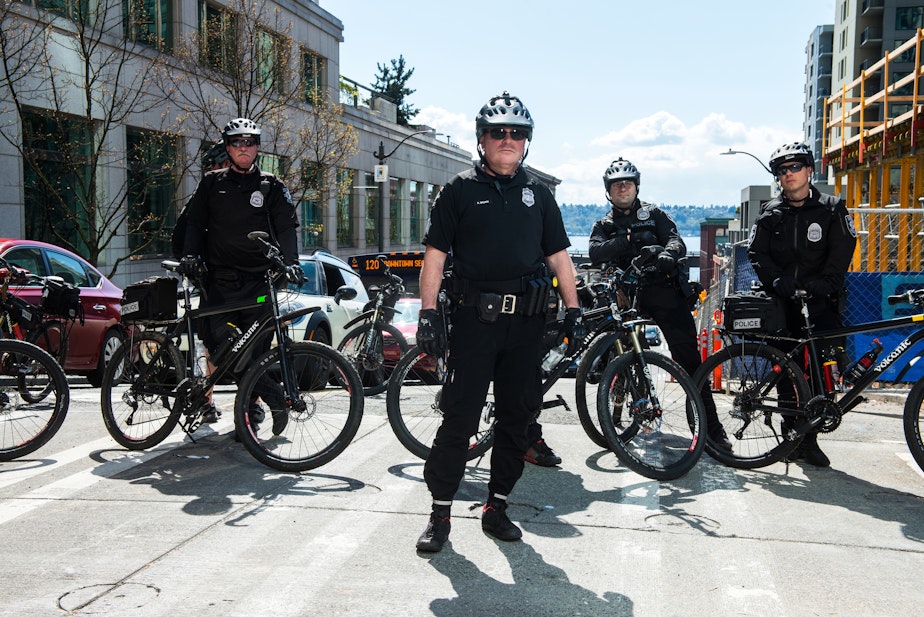Police reforms approved in Seattle

The Seattle City Council has unanimously passed a measure to put civilians in charge of police oversight. It comes five years after a federal judge called attention to excessive force and biased policing within the Seattle Police Department.
The goal of the measure is to hold officers more accountable. Its passage is a victory for advocates of police reform, including City Councilmember Lorena González. She has led the effort on the council’s end.
González: "This will be an accountability system that will have legitimacy among our officers and police reform advocates. That is quite the achievement."
There are three branches in the new system, all three of which will be staffed by civilians.
- The city's Office of Police Accountability will investigate officers who are accused of misconduct. It will also have authority to address systemic problems in police training or supervision.
- A new Office of Inspector General will conduct performance audits of the SPD as a whole. The office will also monitor the SPD's adherence to city policies and federal policing policies, including appropriate use of force.
- The third branch, a 21-member Community Police Commission, will bring to light policing issues in Seattle, especially those experienced by the disenfranchised.
Sponsored
Some stakeholders in the community remain hesitant about the reforms. City Attorney Pete Holmes has expressed concerns before and gave his thoughts at Monday’s council meeting.
Holmes: "I don't agree with everything in this ordinance. But it will in many ways increase accountability, make our system stronger, increasingly responsive to community concerns."
Holmes wanted the Office of Inspector General to be the lead for police oversight. Instead, the work will be split between three groups.
Members of the Civilian Police Commission have qualms, too. They are arguing for a bigger role in future police contract negotiations.
That concerns Kevin Stuckey, president of the Seattle Police Officers Guild.
Sponsored
Stuckey: “This is my community, and I’m ready to get to work, I don’t impede anything. If this is what the community wants, they have a say in how they [are] being policed. I’m just here to say let’s play by the rules.”
The debate isn't quite over. U.S. District Judge James Robart still needs to sign off on the reform package. He has overseen Seattle’s federal Consent Decree on policing since 2012. Policing issues within SPD were brought to light by community members such as Reverend Harriett Walden, who is now co-chair of the Community Police Commission.
Lorena González says on the city’s end, this is just one step in the reform process. Next, the City Council needs to hire for the new civilian roles and include them in the upcoming city budget.

